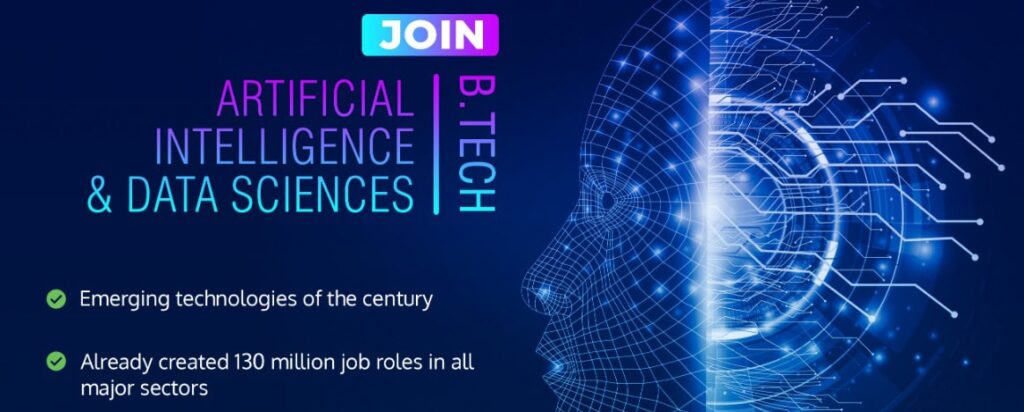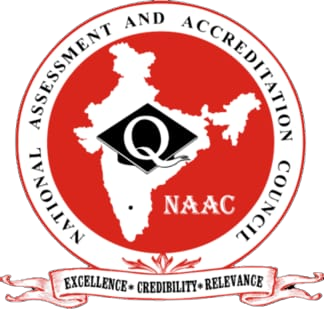
The Department of Artificial Intelligence and Data Science was established in the year 2019 with 60 students. The Department is fully equipped with high quality laboratories. The Department consists of dedicated and highly qualified faculty members. The laboratories are updated with highly configured systems and recent Technological software, which enables to provide quality education. Students are motivated to participate in competitive events, National and International Conferences that are conducted by various Organizations and Educational Institutions. Students also visit Industries to gain practical knowledge on application of the technologies they learn as part of their course curriculum. Our Department Staff and Students are members in various Associations. We conduct several Faculty Development Programs (FDP), Guest Lecturers and Symposium for the benefit of students and staffs related to the subjects with the new and emerging concepts by the experts in that area.
VISION OF THE DEPARTMENT
To be a Centre of excellence in the field of Artificial Intelligence and Data Science.
MISSION OF THE DEPARTMENT
- To provide conducive learning environment for quality education in the field of Artificial Intelligence and Data Science.
- To pursue industry institute interaction and promote collaborative research activities.
- To empower the students with ethical values and social responsibilities in their profession
PROGRAMME OUTCOMES (POS)
- PO1:Engineering knowledge: Apply the knowledge of mathematics, science, engineering fundamentals, and an engineering specialization to the solution of complex engineering problems.
- PO2: Problem analysis: Identify, formulate, review research literature, and analyze complex engineering problems reaching substantiated conclusions using first principles of mathematics, natural sciences, and engineering sciences.
- PO3: Design/development of solutions: Design solutions for complex engineering problems and design system components or processes that meet the specified needs with appropriate consideration for the public health and safety, and the cultural, societal, and environmental considerations.
- PO4: Conduct investigations of complex problems: Use research-based knowledge and research methods including design of experiments, analysis and interpretation of data, and synthesis of the information to provide valid conclusions.
- PO5: Modern tool usage: Create, select, and apply appropriate techniques, resources, and modern engineering and IT tools including prediction and modelling to complex engineering activities with an understanding of the limitations.
- PO6: The engineer and society: Apply reasoning informed by the contextual knowledge to assess societal, health, safety, legal and cultural issues and the consequent responsibilities relevant to the professional engineering practice.
- PO7: Environment and sustainability: Understand the impact of the professional engineering solutions in societal and environmental contexts, and demonstrate the knowledge of, and need for sustainable development.
- PO8: Ethics: Apply ethical principles and commit to professional ethics and responsibilities and norms of the engineering practice.
- PO9: Individual and team work: Function effectively as an individual, and as a member or leader in diverse teams, and in multidisciplinary settings.
- PO10: Communication: Communicate effectively on complex engineering activities with the engineering community and with society at large, such as, being able to comprehend and write effective reports and design documentation, make effective presentations, and give and receive clear instructions.
- PO11:Project management and finance: Demonstrate knowledge and understanding of the engineering and management principles and apply these to one’s own work, as a member and leader in a team, to manage projects and in multidisciplinary environments.
- PO12: Life-long learning: Recognize the need for, and have the preparation and ability to engage in independent and life-long learning in the broadest context of technological change.
PROGRAMME EDUCATIONAL OBJECTIVES (PEOS)
- Exhibit professional skills to design, develop and test software systems for real time needs.
- Excel as software Professional or Entrepreneur.
- Demonstrate a sense of societal and ethical responsibilities in their profession.
PROGRAMME SPECIFIC OUTCOMES (PSOS)
After the successful completion of B.Tech Programme in Artificial Intelligence and Data Science, Graduates will be able to,
- Apply the acquired knowledge and modern techniques in the field of Artificial Intelligence and Data Science based systems.
- Design and integrate Artificial Intelligence and Data Science based solutions to meet the desired needs of society.

 For Admission 91 9962022222
For Admission 91 9962022222














